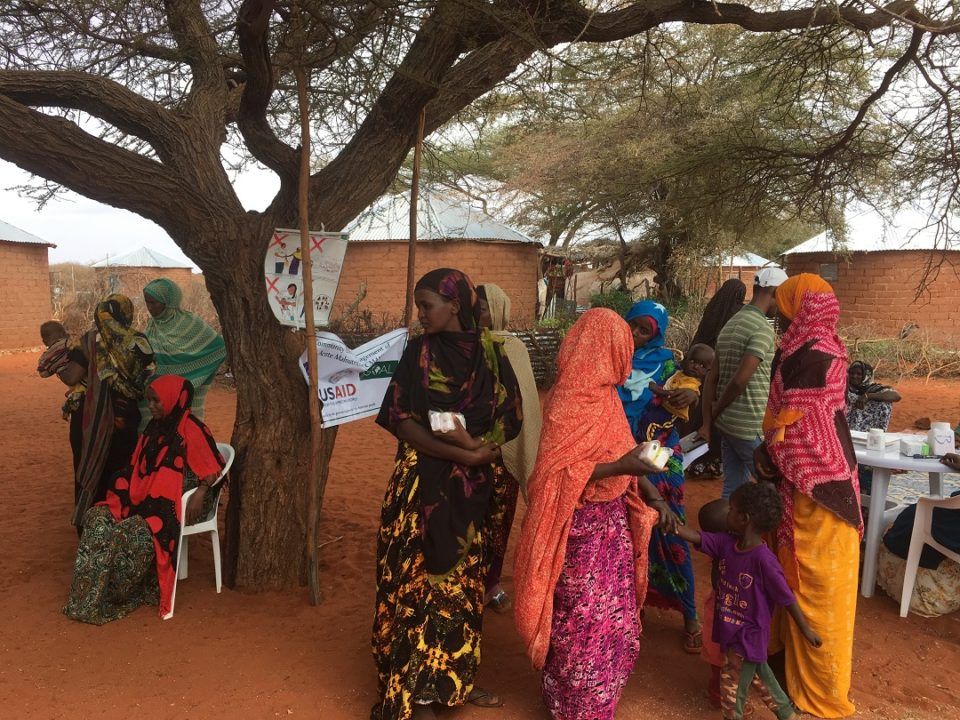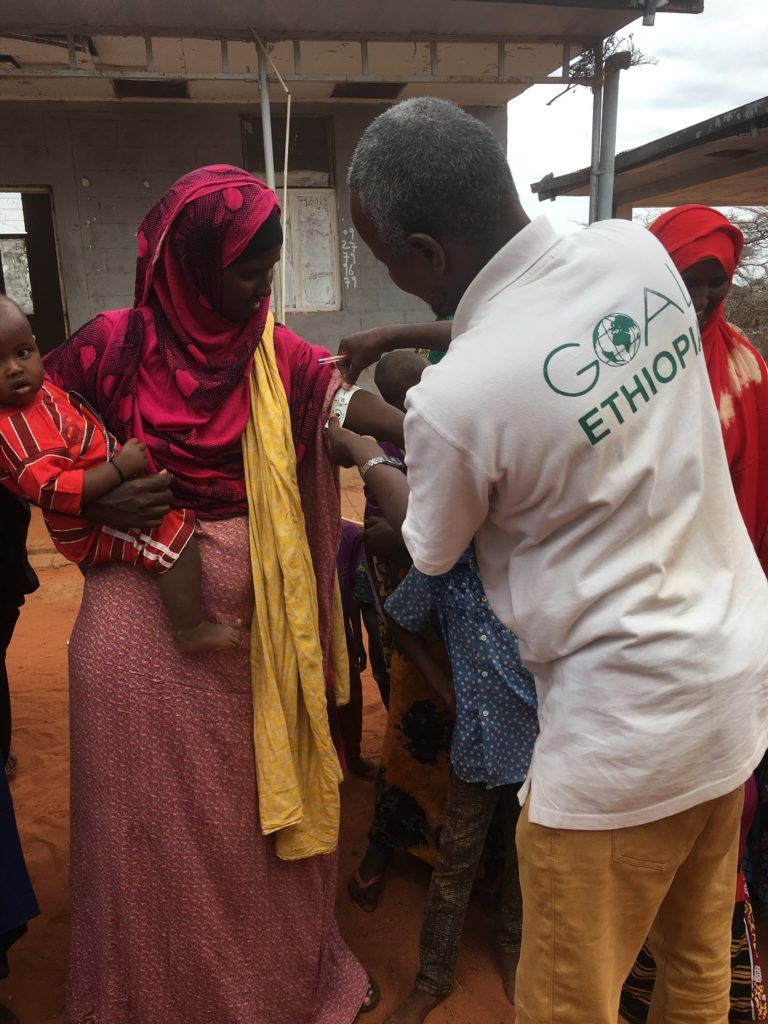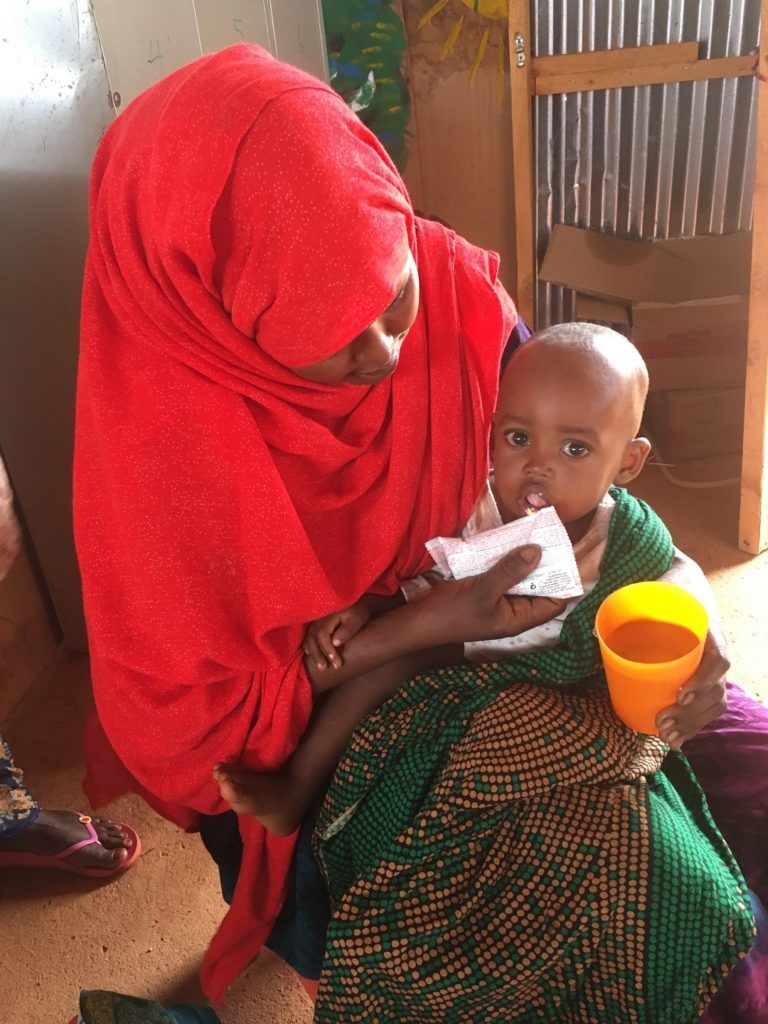 Blogs
Blogs
October 4, 2019 • 3 min read
DOLLO ZONE, SOMALI REGION – IS A VAST, ARID AREA IN THE SOUTH OF ETHIOPIA. IT IS COVERED FOR HUNDREDS OF MILES WITH THICK RED DESERT SAND AND THORNY BUSHES. THERE ARE FEW URBAN SETTLEMENTS AND ELECTRICITY IS INTERMITTENT. AT NIGHT THE STARS ARE SO BIG AND BRIGHT YOU CAN ALMOST TOUCH THEM. THE HIGH TEMPERATURES ARE SOOTHED BY A STRONG WIND THAT BLOWS THE DESERT SAND INTO MINI TORNADOS EVERY DAY. PASTORALISM IS THE ONLY FORM OF LIVELIHOOD FOR ALMOST ALL PEOPLE IN DOLLO.

By Lesley-Ann Devereaux, Grants Coordinator, GOAL Ethiopia
Donkeys are still the key means to transport supplies; termite hills can grow to the size of a two-story house; and it’s not uncommon to get caught up in a traffic jam of camels on the sandy tracks! I have been to Dollo on multiple occasions over the past two years since GOAL has been working here, and every time I become a little more endeared to this desolate land. The Somali are beautiful and generous people. They live by an intricate clan system that has been in place for thousands of years. They have their own varieties of dance and mystical music played with string instruments. The women dress in long, brightly coloured clothing. Tea is drunk sweet and strong, and spaghetti is the staple food – a legacy of the Italian occupation of Ethiopia. At night communities gather together in the many little shops and tea stalls to watch the Turkish soap operas on TV which are so popular across the country.
GOAL has been working in Dollo Zone for two years, responding to a severe drought that left millions in need of humanitarian assistance. In August 2019 I accompanied our Donor, USAID-OFDA on a monitoring visit to GOAL’s sites. We first visited an in-patient facility for children suffering from severe acute malnutrition. GOAL’s staff are working hand in hand with the Somali Regional Health Bureau to provide health and nutrition services for pregnant women and children under five, those most vulnerable to malnutrition. In the facility there is only one little boy, Mohammed, nine months old. He had been there for a few days receiving 24-hour care from the GOAL and government nurses. He sits in his mother’s lap and smiles as I bend down to hold his hand. Alert and smiling – it’s a wonderful sign that he is recovering.
Three years of poor-performing rains and consecutive droughts in the area have left millions in need of humanitarian assistance. Since 2017, GOAL has supported the government to treat more than 90,000 women and children for acute malnutrition in Somali Region alone.
Our next stop was a camp for displaced households. With pastoralism being the only form of livelihood, those who lost all livestock during the severe drought in 2017 were forced to migrate in search of food and water. In this camp, the Somali government has built traditional houses for the community, to help them recover and re-start their lives. However, the camp is located many kilometres from the nearest health facility. GOAL has established a mobile health and nutrition team that visits the camp on a weekly basis, to screen and treat women and children for malnutrition, carry out medical consultations, and provide essential primary healthcare services – such as vaccinations and reproductive healthcare for pregnant women.
Many of the displaced communities and mobile pastoralist across Dollo Zone are unable to access healthcare facilities. GOAL has deployed three mobile teams across three districts to reach these vulnerable communities, and in the past two months, we have provided more than 6,500 consultations to men, women and children.
The activities being carried out by GOAL and the local health workers are having a clear impact in terms of improving nutritional status among these vulnerable groups. But there is still much more to do. The weather outlook for the region is not good, and without rains, these communities who have yet to recover from previous years of drought will become even more vulnerable. GOAL’s team are positioned on the ground, ready to support the local government in their efforts to help prevent and respond to this crisis.
GOAL’s work in Dollo Zone is made possible by the generous support of our Donors – the United States Agency for International Development (Office of Foreign Disaster Response), UN Agencies, and the Irish Public.


